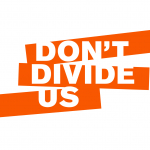The Student Who Disagreed (and was brave enough to speak out)
Lest we think all young people agree with identitarian political ideas, Peter Hosangady, a 17-year-old college student, writes about what can happen in a classroom when a teacher confesses apologetically that he is the bearer of ‘white privilege’ and may not be able to teach ‘Black History’ very well. The effect is not liberatory or reassuring – instead it just caused his white peers to ‘seize up’. The hypersensitivity about skin colour doesn’t make communication easier, it just creates awkwardness, fear and suspicion where there was none before. Peter’s clear and compelling account shows it’s not just oldies who don’t agree with identity politics!
The college I currently attend is very racially diverse, and that is one of the reasons I love it. I myself am half Cypriot and half Indian, born and raised in England with two sets of immigrant grandparents, so adapting to and celebrating different cultures has always been an integral part of my life. I came to college with a very multicultural friendship group, with friends from India, England, South Africa and Hong Kong.
One of the things that I found remarkable about my college (at least on the surface) was that not only did it acknowledge this diversity, but also celebrated it. I was taken aback by the numerous focus groups, EDI boards and clubs, and initially, I felt inspired by the richness around me. However, this feeling quickly faded.
I first became concerned when our tutor was presented with a lesson on Black History Month. Personally, I have never been keen on Black History Month – I have never been able to relate to it, and all the historical figures shown seemed to have been crammed in as a progressive tokenism.
The slideshow itself was typical – a few pieces of information on the Windrush Generation, and the discrimination they had to endure once arriving in the UK. My issue came when we had to discuss the slides.
Our tutor (who happened to be white) expressed his inability to teach the slides properly due to his white privilege, claiming that ‘he was the problem’. Immediately, I could feel every other white student seize up. My white friend looked at me awkwardly, as if she wanted to speak, but was unable to. I recognised that with that one claim, the entire conversation had been silenced – our tutor’s guilt had unfairly been projected onto every student who happened to share his skin colour.
I raised my hand and respectfully pointed out the toxicity of the tutor’s statement. I elaborated that, assuming that he had not committed racism against another individual, he had no reason to apologise. To assume that he had wronged me simply by being born with less melanin than I had, and thus deny him access to the conversation, was as morally flawed as the logic used to deny African Americans access to restaurants and seating areas in the Jim Crow Era. Of course, I stated my race to validate such a statement, something I have always hated doing and hope I always will. My tutor responded simply that he had not thought about things that way before. I refrained from asking how he had ventured to make such a generalising claim without thinking.
After that tutor session, I began to view the EDI focus at the college differently. After months of thinking over this discomfort, I have isolated three specific issues:
Firstly, the over-emphasis on diversity within education feels degrading. I am no longer a student with individual hopes, interests and motivations, I am now just mixed-race. My most noteworthy attribute is no longer my faith, my passions or even my culture, but rather the colour of my skin. Suddenly, I and everyone else who is not white are reduced to one of the most immaterial aspects of our character. Paradoxically, we are robbed of the ability to be recognised as equals. Moreover, we are suddenly different. For no reason other than our skin colour, we are now regarded as ‘other’ and integrated into a system of acronyms and victimhood.
Secondly, it is also incredibly divisive. As seen in the tutor session, racism suddenly becomes an issue only for ethnic minorities and entry into the issue is based on race rather than experience or knowledge. The fact of the matter is that racism is a universal evil that can be experienced or perpetuated by any of us – white or otherwise. To teach racism through the untested lens of the social justice movement and Critical Race Theory is not only to segregate the classroom and betray the blindness of education, but it also denies white people the ability to empathise and unite over the issue. History has proven that racism is not a plague that can be purged through division and resentment, but rather through unity and a common understanding.
Thirdly, tackling racism should not be a priority within education. Schools and colleges exist to educate – to raise a generation fully equipped to approach, tackle and embrace the world. Of course, racism is still present and achieving a proper view of the world cannot be achieved without being equipped to tackle and overcome it, but the contemporary anti-racist methods are not the solution. My own college is outstanding on this issue – our courses have retained the canonical criteria for quality, and overall, every student is appreciated and inspired as an individual. However, I am alarmed at the proposed revisions being introduced at a nationwide level. The purpose of a teacher is not to ‘decolonise the classroom’, but to present an impartial and honest view of the world. An education system that pushes material based on race alone, disqualifies the groundbreaking achievements of ‘dead white men’ and promotes teachers to the role of social justice advocates rather than educators removes both of these pillars.
In conclusion, education is impartial, it is colourblind, and it is inspiring. It equips students of all races, cultures and ethnicities to approach the world with as much equality as possible, and opens a vast palette of opportunities for every learner. What it is not is a social-justice tool for politicised exam boards and teachers. If you don’t want to hear that from the incredible educators in this group, then hear it from a student.


